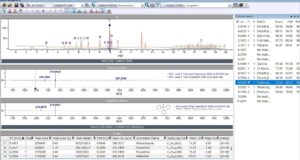
A new research paper was published in Oncotarget’s Volume 15 on October 11, 2024, entitled “Relationship between the expressions of DLL3, ASC1, TTF-1 and Ki-67: First steps of precision medicine at SCLC”
This study, led by researchers from the Federal University of Ceará in Brazil and collaborating institutions in Brazil, Argentina and Spain, presents important findings on small cell lung cancer (SCLC), one of the most aggressive forms of lung cancer with limited treatment options. The research reveals how specific biomarkers in SCLC tumors could open new opportunities for more personalized and targeted therapies for these patients.
SCLC accounts for about 15% of all lung cancer cases and is known for its rapid spread and resistance to many treatments. Currently, the five-year survival rate for SCLC patients is below 5%. Recent advances in precision medicine aim to improve these outcomes by identifying and targeting the unique characteristics of each patient’s tumor.
Researchers Samuel Silva, Juliana C. Sousa, Cleto Nogueira, Raquel Feijo, Francisco Martins Neto, Laura Cardoso Marinho, Guilherme Sousa, Valeria Denninghoff, and Fabio Tavora analyzed tumor samples from 64 SCLC patients using both traditional and digital pathology tools. Their findings highlighted promising results for two of the analyzed biomarkers: Delta-like ligand 3 (DLL3) and Thyroid transcription factor-1 (TTF-1).
DLL3 was identified in over 70% of the tumors, highlighting its potential as a promising target for therapies like Tarlatamab. Another key finding involved TTF-1 expression; patients with TTF-1-positive tumors showed improved survival rates, underscoring its potential as a prognostic marker to refine diagnoses and predict patient outcomes.
The authors also noted that, “The use of digital pathology software QuPath enhanced the accuracy and depth of analysis, allowing for detailed morphometric analysis and potentially informing more personalized treatment approaches.”
In conclusion, the study suggests that clinical trials targeting biomarkers like DLL3 and TTF-1 could enhance SCLC patient outcomes by tailoring treatments based on individual biomarker profiles. This research marks an important step forward in precision medicine for SCLC.
Source:
Journal reference:
Silva, S., et al. (2024) Relationship between the expressions of DLL3, ASC1, TTF-1 and Ki-67: First steps of precision medicine at SCLC. Oncotarget. doi.org/10.18632/oncotarget.28660.




